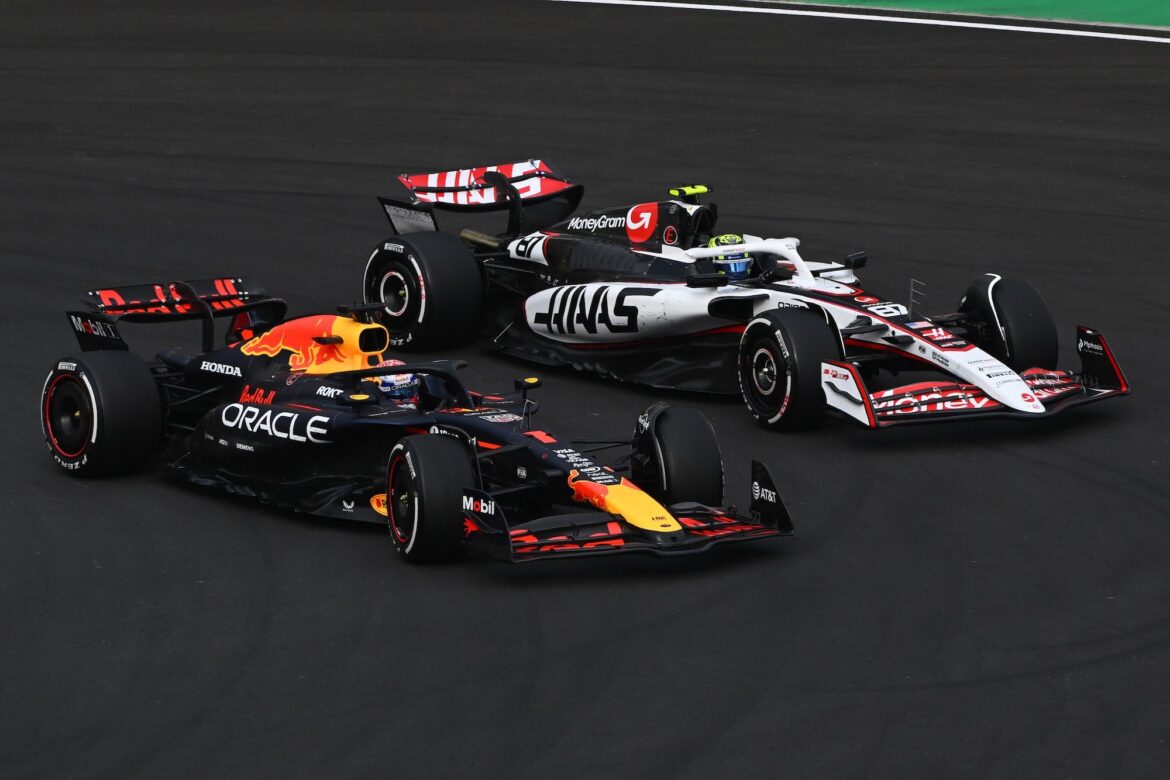Haas Driver Oliver Bearman Supports Verstappen’s Critique of F1 Penalty Points System
In the world of Formula 1 racing, the penalties imposed on drivers have become a hot topic of discussion, especially among younger competitors. Oliver Bearman, a driver for the Haas team, recently voiced his agreement with Max Verstappen’s concerns regarding the current penalty points system. According to Bearman, the existing framework for punishing drivers is overly harsh and undermines the competitive spirit that defines the sport.
Understanding the Penalty Points System
The penalty points system in Formula 1 is designed to maintain discipline among drivers and ensure that they adhere to safety regulations and sportsmanship. Under this system, drivers accumulate points on their super licenses for various infractions during races. If a driver reaches a certain threshold of penalty points, they face suspension from a race. Currently, Verstappen has accumulated eleven penalty points on his super license, and he risks being sidelined from a future race if he receives just one more point.
Verstappen’s Perspective
Max Verstappen, the Dutch driver known for his aggressive racing style and competitive nature, has expressed his opinion that the penalty system is not balanced when compared to the severity of the offenses that lead to these punishments. He believes that the current structure does not fairly reflect the nature of the infractions committed by drivers. Though he has downplayed the immediate threat of facing a suspension, his critique highlights a growing concern among drivers about the rigidity of the rules.
Bearman’s Agreement
Bearman has taken a stand in support of Verstappen’s position, stating, "I agree." He emphasized his belief that the penalties can be excessive, particularly when they lead to suspensions for actions that are part of the competitive nature of racing. He recalled a specific incident involving his teammate Kevin Magnussen, who received a suspension after accumulating penalty points for what Bearman considers minor infractions. While Bearman benefited from Magnussen’s suspension by stepping in as a replacement driver during the Azerbaijan Grand Prix, he still felt that the punishment was unjust.
The Impact of Minor Infractions
Bearman pointed out that minor racing incidents can lead to significant penalties. For example, he described a scenario where a driver attempts an overtaking maneuver that ultimately fails, resulting in both drivers cutting the corner. In such cases, if no harm is done and neither driver suffers significant consequences, it seems disproportionate for a driver to receive two penalty points on their super license. Bearman believes that this accumulation of penalty points can happen quickly, which he finds disheartening.
The Need for Balanced Punishments
At just twenty years old, Bearman has already accumulated six penalty points this season. He acknowledges that some form of punishment is essential in order to deter dangerous behavior on the track. However, he insists that there must be a balance in how these penalties are applied. "Of course, drivers need to be penalized in some way to prevent certain behaviors. But I think there has to be a sense of proportion," he stated.
A Growing Debate Among F1 Drivers
Bearman’s comments reflect a broader conversation that is increasingly prevalent among Formula 1 drivers. Many are expressing concerns that the current rigid enforcement of penalties may hinder the competitiveness and unpredictability that the sport thrives on. The need for a review and potential overhaul of the penalty points system is gaining traction in the paddock, as drivers seek a fairer approach.
The Role of Competition in F1
Competition is the heartbeat of Formula 1, and drivers are constantly pushing the limits to gain an advantage over their rivals. However, when the fear of penalties looms large, it can stifle the willingness to take risks on the track. Drivers like Bearman and Verstappen argue that the essence of racing should allow for some level of aggression and daring maneuvers, as long as they do not compromise safety.
Historical Context of Penalties in F1
Historically, penalties have been a part of motorsport, with varying degrees of strictness applied over the decades. In earlier years, the penalties were often viewed as part of the game, where drivers accepted that taking risks could lead to consequences. However, as the sport has evolved, so too have the regulations. The introduction of the penalty points system aimed to create a safer environment, but it has also prompted discussions about whether the current structure is too punitive.
Looking Ahead: Potential Changes to the System
As the debate continues, there may be opportunities for the governing body of Formula 1 to reassess the penalty points system. This could involve engaging with drivers, teams, and stakeholders to gather insights on how to create a more balanced approach to penalties. A more flexible system could encourage drivers to race more freely, fostering the excitement and unpredictability that fans cherish.
The Importance of Driver Input
The voices of drivers like Bearman and Verstappen are crucial in shaping the future of Formula 1 regulations. Their experiences on the track offer valuable perspectives that can inform potential changes to the penalty system. By advocating for a more reasonable approach, these drivers are not only looking out for their interests but also for the integrity of the sport itself.
Conclusion
In summary, the comments made by Oliver Bearman regarding the penalty points system in Formula 1 highlight a significant concern shared by many drivers. As they navigate the complexities of racing, the balance between maintaining discipline and allowing for competitive spirit is a delicate one. The ongoing dialogue among drivers, teams, and regulators will be essential in determining how the sport evolves and adapts to the needs of its competitors and fans alike.
